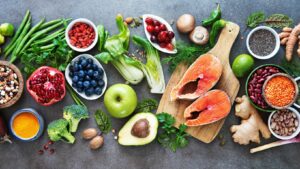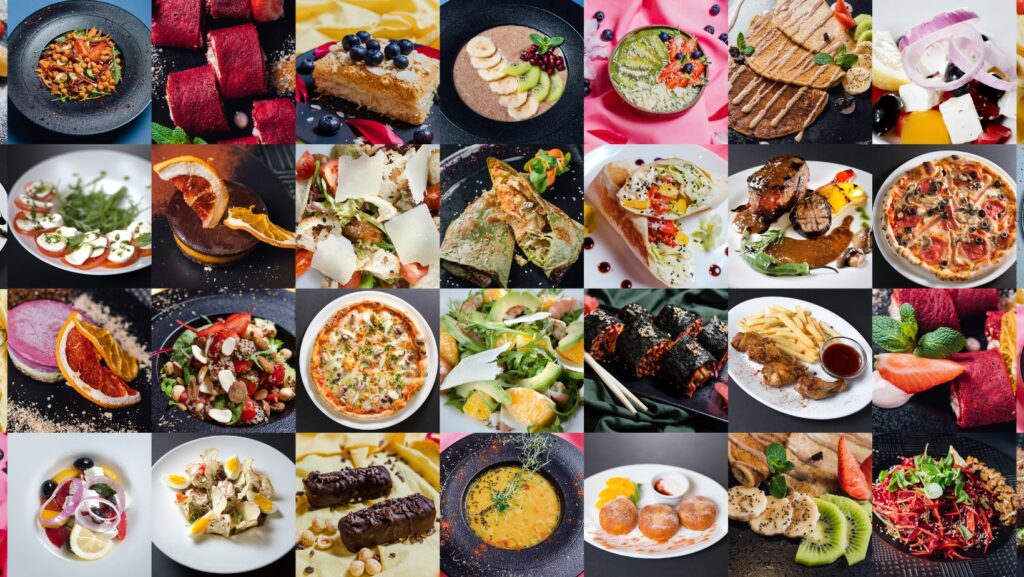 AI Platform for Food Innovation
AI Platform for Food Innovation
- AI Revolutionizes Food Innovation: AI platforms are transforming the culinary landscape by analyzing data to predict trends and optimize recipes for enhanced flavor and creativity.
- Key Functions of AI Platforms: These systems facilitate trend analysis, recipe optimization, flavor enhancement, efficient supply chain management, and provide valuable consumer insights.
- Technologies Driving Innovation: Machine learning and natural language processing are essential technologies in AI for food, enabling personalized recommendations and improved customer interactions.
- Benefits of AI Adoption: Food innovators experience enhanced product development and improved supply chain management, resulting in healthier offerings and minimized waste.
- Challenges to Overcome: Data privacy concerns and integration with existing systems are significant hurdles that companies must address to effectively implement AI solutions in the food industry.
- Successful Case Studies: Leading brands like Nestlé, Unilever, and PepsiCo demonstrate the successful application of AI, showcasing its potential to enhance product development and streamline operations.
In a world where culinary creativity meets cutting-edge technology, AI platforms are revolutionizing food innovation. These intelligent systems analyze vast amounts of data to predict trends, optimize recipes, and enhance flavors, making it easier for chefs and food entrepreneurs to push the boundaries of gastronomy.
As the demand for unique dining experiences grows, leveraging AI becomes essential for staying ahead in the competitive food industry. From automating mundane tasks to providing insights into consumer preferences, these platforms empower food innovators to create dishes that not only satisfy but also surprise. Exploring the intersection of artificial intelligence and culinary arts reveals exciting possibilities that could redefine how we think about food.
Overview of AI Platforms for Food Innovation
AI platforms for food innovation leverage advanced algorithms and data analytics to transform various aspects of the food industry. These platforms perform several key functions:
- Trend Analysis: AI systems analyze vast datasets to identify emerging culinary trends. By processing consumer feedback and sales data, these platforms predict shifts in customer preferences, ensuring that food innovators stay ahead of the curve.
- Recipe Optimization: AI tools enhance recipe development by suggesting ingredient substitutions and adjustments. They analyze taste profiles and dietary requirements, enabling chefs to craft innovative dishes that cater to diverse consumer needs.

- Flavor Enhancement: AI algorithms simulate combinations of flavors, predicting how they interact. This capability allows culinary professionals to create unique and delightful flavor profiles that resonate with customers.
- Supply Chain Management: AI platforms streamline supply chain operations by optimizing inventory levels and reducing waste. They utilize predictive analytics to anticipate demand and make data-driven sourcing decisions.
- Consumer Insights: AI systems gather real-time data from social media and online reviews, providing valuable insights into consumer preferences. This information helps food brands tailor their offerings and marketing strategies effectively.
AI platforms are pivotal for food entrepreneurs and chefs seeking to innovate. Their ability to analyze complex data, predict trends, and enhance creativity solidifies their role in the future of gastronomy.
Key Technologies in AI for Food
AI technology encompasses various tools that drive innovation in the food industry. These technologies enhance productivity and creativity, allowing food brands to adapt quickly to shifting market demands.
Machine Learning Applications
Machine learning algorithms excel in processing large datasets to extract meaningful patterns. They analyze consumer behavior, predicting purchase preferences and dietary trends. Food companies utilize machine learning for personalized recommendations, enhancing customer satisfaction. By optimizing supply chain logistics, machine learning minimizes waste and maximizes efficiency, achieving operational excellence. For instance, predictive analytics enable accurate demand forecasting, ensuring optimal stock levels.
Natural Language Processing in Food Innovation
Natural language processing (NLP) transforms how food brands interact with consumers. NLP technologies analyze customer feedback from social media and reviews, providing actionable insights. By understanding sentiment and preferences, companies can tailor menu offerings and marketing strategies. NLP also aids in developing chatbots for real-time customer support, streamlining the communication process. Additionally, it assists in recipe analysis, extracting key ingredients and trends from culinary texts and blogs to inspire innovation in food product development.
Benefits of AI Platforms for Food Innovation
AI platforms offer significant advantages for food innovators, including enhanced product development and improved supply chain management. These benefits streamline processes and lead to more informed decision-making in the food industry.
Enhanced Product Development
AI platforms enhance product development by analyzing consumer preferences and predicting culinary trends. They utilize machine learning algorithms to assess vast datasets, allowing food innovators to identify popular ingredients and flavor combinations. By suggesting ingredient substitutions and recipe modifications based on nutritional values and taste profiles, AI helps create healthier and more appealing food options. Moreover, automated A/B testing of recipes facilitates rapid iteration, enabling chefs to refine their dishes effectively before finalizing them for the market.
Improved Supply Chain Management
Improved supply chain management is another critical benefit of AI platforms. These systems utilize predictive analytics to optimize inventory levels and anticipate demand fluctuations. By analyzing historical sales data and current market trends, AI minimizes food waste and ensures that supply meets consumer demand efficiently. Furthermore, AI algorithms streamline logistics, enhancing delivery schedules and reducing transportation costs. With real-time monitoring and analysis, food businesses can better respond to disruptions, leading to a more resilient supply chain.
Challenges in Implementing AI Solutions
Implementing AI solutions in the food industry presents several challenges that require careful consideration. Addressing these hurdles ensures successful integration and maximizing the benefits of AI technologies.
Data Privacy Concerns
Data privacy concerns significantly impact the adoption of AI platforms in food innovation. Companies collect vast amounts of consumer data to refine their offerings and enhance customer experiences. Ensuring compliance with regulations, such as the General Data Protection Regulation (GDPR) and California Consumer Privacy Act (CCPA), is crucial. Food brands must prioritize transparent data usage and establish robust security measures to protect consumer information. Failing to address these issues can result in legal ramifications and loss of consumer trust.
Integration with Existing Systems
Integration with existing systems poses another challenge. Many food companies operate on legacy systems that may not easily accommodate new AI technologies. Successful integration requires careful assessment of current infrastructure and alignment of AI solutions with existing processes. Ensuring seamless data flow between systems enhances the effectiveness of AI applications. Companies must invest in training employees to navigate new technologies, fostering an environment of adaptability and innovation within their organizations.
Case Studies of Successful Implementation
AI platforms have shown remarkable success in the food industry, demonstrating their potential for innovation and efficiency. The following case studies highlight how various organizations effectively integrated AI into their operations.
- Nestlé
Nestlé employed AI to optimize product development and tailor offerings. By analyzing consumer data from diverse sources, they identified preferences and trends. This approach led to the creation of new flavors and healthier product options, catering to evolving consumer demands.
- Unilever
Unilever utilized AI to enhance its supply chain management. Through predictive analytics, the company optimized inventory levels and reduced food waste. AI’s capabilities improved demand forecasting accuracy, enabling more efficient distribution and cost savings across various product categories.
- IBM Watson and the Institute of Culinary Education
IBM Watson collaborated with the Institute of Culinary Education to revolutionize recipe development. By leveraging natural language processing, the AI analyzed thousands of recipes and ingredient combinations. This partnership resulted in unique dish creation, showcasing the culinary possibilities AI can unlock.
- Olio

Olio, a food-sharing app, harnessed AI to reduce food waste. The platform uses machine learning algorithms to connect users with surplus food, ensuring redistribution to those in need. This innovative approach not only minimizes waste but also fosters community engagement around food sustainability.
- PepsiCo
PepsiCo integrated AI into its marketing strategies by analyzing consumer engagement data. Advanced analytics helped identify key trends and preferences, allowing the company to craft targeted campaigns. This data-driven approach increased brand loyalty and customer satisfaction.
These case studies illustrate the transformative impact of AI platforms on food innovation, emphasizing their role in enhancing product development, optimizing supply chains, and driving sustainable practices.
Efficient Food Ecosystem
AI platforms are revolutionizing the food industry by empowering chefs and food entrepreneurs to push the boundaries of culinary innovation. By harnessing the power of data analysis and machine learning, these tools not only streamline recipe development but also enhance flavor profiles and optimize supply chains. As the food landscape continues to evolve, embracing AI will be essential for staying competitive and meeting consumer demands.
The successful integration of AI technologies can lead to significant advancements in product development and sustainability. Companies that adapt to these innovations will likely find themselves at the forefront of a rapidly changing industry. The future of gastronomy is bright for those willing to leverage AI’s capabilities to create unique dining experiences and foster a more efficient food ecosystem.



